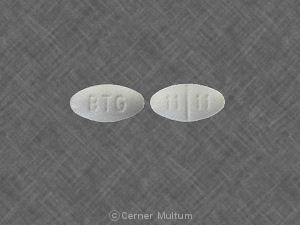What is Oxandrolone?
Oxandrolone is a man-made steroid, similar to the a naturally occuring steroid testosterone.
Oxandrolone is used to promote weight gain following extensive surgery, chronic infection, or severe trauma, and in other cases that result in inadequate weight gain or maintenance. Oxandrolone is also used to decrease muscle loss caused by treatment with corticosteroids and to reduce bone pain associated with osteoporosis.
Oxandrolone may also be used for purposes other than those listed here.
What is the most important information I should know about Oxandrolone?
In rare cases, serious and even fatal cases of liver problems have developed during treatment with oxandrolone. Contact your doctor immediately if you experience abdominal pain, light colored stools, dark colored urine, unusual fatigue, nausea or vomiting, or yellowing of the skin or eyes. These may be early signs of liver problems.
What should I discuss with my healthcare provider before taking Oxandrolone?
Do not take oxandrolone without first talking to your doctor if you have
- prostate cancer
- breast cancer; or
- a high level of calcium in the blood (hypercalcemia)
Before taking oxandrolone, talk to your doctor if you
- have heart or blood vessel disease
- have had a heart attack
- have a high level of cholesterol in the blood
- have bleeding or blood clotting problems
- have diabetes
- take an oral anticoagulant (blood thinner)
- have liver problems; or
- have kidney problems
You may not be able to take oxandrolone, or you may require a dosage adjustment or special monitoring during treatment.
Oxandrolone is in the FDA pregnancy category X. This means that oxandrolone is known to cause birth defects in an unborn baby. Do not take this medication if you are pregnant or could become pregnant during treatment.
It is not known whether oxandrolone passes into breast milk. Do not take this medication without first talking to your doctor if you are breast-feeding a baby.
Oxandrolone side effects
What are the possible side effects of Oxandrolone?
In rare cases, serious and even fatal cases of liver problems have developed during treatment with oxandrolone. Contact your doctor immediately if you experience abdominal pain, light colored stools, dark colored urine, unusual fatigue, nausea or vomiting, or yellowing of the skin or eyes. These may be early signs of liver problems.
If you experience any of the following serious side effects, contact your doctor immediately or seek emergency medical attention:
- an allergic reaction (difficulty breathing; closing of the throat; swelling of the lips, tongue, or face; or hives)
- swelling of the arms or legs (especially ankles)
- frequent or persistent erections, or breast tenderness or enlargement (male patients); or
- voice changes (hoarseness, deepening), hair loss, facial hair growth, clitoral enlargement, or menstrual irregularities (female patients)
Other less serious side effects may also occur. Talk to your doctor if you experience
- new or worsening acne
- difficulty sleeping
- headache; or
- changes in sexual desire
Side effects other than those listed here may also occur. Talk to your doctor about any side effect that seems unusual or that is especially bothersome. You may report side effects to FDA at 1-800-FDA-1088.
Oxandrolone Interactions
What other drugs affect Oxandrolone?
Before taking oxandrolone, talk to your doctor if you are taking any of the following medicines:
- an anticoagulant (blood thinner) such as warfarin (Coumadin); or
- insulin or an oral diabetes medicine such as glipizide (Glucotrol), glyburide (DiaBeta, Glynase, Micronase), glimipiride (Amaryl), chlorpropamide (Diabinese), acetohexamide (Dymelor), tolbutamide (Orinase), tolazamide (Tolinase), and others
You may require a dosage adjustment or special monitoring if you are taking any of the medicines listed above.
Drugs other than those listed here may also interact with oxandrolone. Talk to your doctor and pharmacist before taking any prescription or over-the-counter medicines, including vitamins, minerals, and herbal products.
What should I avoid while taking Oxandrolone?
There are no restrictions on food, beverages, or activities while you are taking oxandrolone unless otherwise directed by your doctor.
Oxandrolone Dosage
How should I take Oxandrolone?
Take oxandrolone exactly as directed by your doctor. If you do not understand these instructions, ask your doctor, nurse, or pharmacist to explain them to you.
Take oxandrolone with a full glass of water.
Oxandrolone can be taken with or without food.
It is important to take oxandrolone regularly to get the most benefit.
Your doctor may want you to have blood tests or other medical evaluations during treatment with oxandrolone to monitor progress and side effects.
Store oxandrolone at room temperature away from moisture, heat, and direct light.
What happens if I overdose on Oxandrolone?
An overdose of this medication is unlikely to threaten life. Contact an emergency room or poison control center for advice if an overdose is suspected.
Symptoms of an oxandrolone overdose are not known.
What happens if I miss a dose of Oxandrolone?
Take the missed dose as soon as you remember. However, if it is almost time for the next dose, skip the dose you missed, and take only the next regularly scheduled dose. Do not take a double dose of this medication.
Sourced from everydayhealth.com

